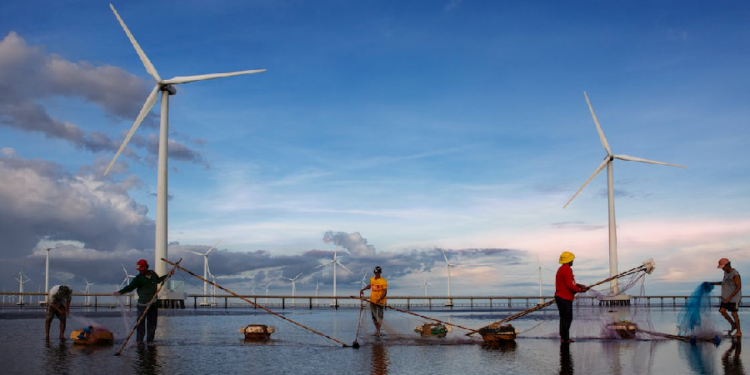Climate change is forcing a worldwide energy system redesign. Renewable energy is increasingly significant due to resource depletion, harsh weather occurrences, and rising temperatures. Renewable energy is needed to reduce carbon emissions, promote energy independence, and create jobs.
The need for energy transition: Recognising the world’s challenge
Reforming the energy sector is essential as efforts to mitigate climate change increase. Climate change, changes in the weather, and the loss of natural resources have made sustainable energy necessary. Wind energy projects and solar panel installation services, such as those provided by a reputable solar company Doncaster, are crucial. Even though fossil fuels were once our primary energy source, they harm the environment and the next generation. Renewable energy boosts economic growth, energy security, and greenhouse gas emission reduction. We must carry out this transition as soon as it is practical to ensure a sustainable future.
Examining the potential and advantages of renewable energy sources
Renewable energy might change the rules for a sustainable future. Consider that the sun, wind, and water create energy naturally. Solar panels generate energy from sunlight, whereas wind turbines collect wind power. If we embrace renewable energy sources, we may lower our carbon footprint, wean ourselves off unreliable energy sources, create jobs, and ensure a cleaner future for future generations. The approach is solid for a wealthy, self-sufficient, and healthy future beyond the environment.
Overcoming obstacles: Breaking through to a sustainable energy future
We need to overcome the challenges facing a future powered by renewable energy. The initial expenses are one of the main obstacles to moving to renewable energy sources. Governments, companies, and people may not be able to pay the early expenditures, but there is no denying the long-term advantages. Furthermore, the grid and infrastructure are not developed enough to support the widespread integration of renewable energy sources. But we can overcome these obstacles with careful planning, political support, and technological breakthroughs. We can create a sustainable future that boosts the economy and the environment by installing additional storage capacity, modernising our infrastructure, and using more renewable energy sources.
The function of international collaboration and government in advancing the energy transition
International collaboration and politics allow the change of the energy system to be more ecologically friendly. Feed-in tariffs and tax breaks might help governments promote renewable energy. Clean technology may be created via research and development. International cooperation encourages high standards, teamwork, and information sharing To combat climate change. Government collaboration has the potential to develop ties with foreign countries, hasten the transition to a greener, more sustainable energy system, and promote the energy industry.
Climate change is endangering the planet. Today, we must shift our energy sources. Switching to renewable energy might enhance economic growth, offer a more sustainable environment for our children, decrease greenhouse gas emissions, and meet our energy needs. To overcome limited resources and inadequate infrastructure, we must embrace new technology, get strong legislative backing, and plan properly. Global cooperation, strong political will, efficient rules, research and development aid, and teamwork may address this enormous burden. Come together to build a more sustainable future for our planet and finances.




























